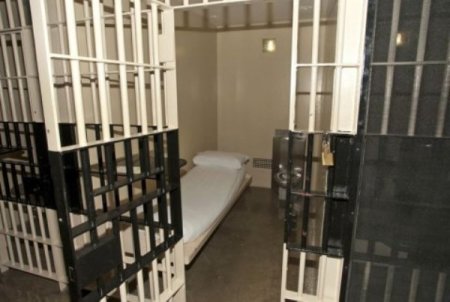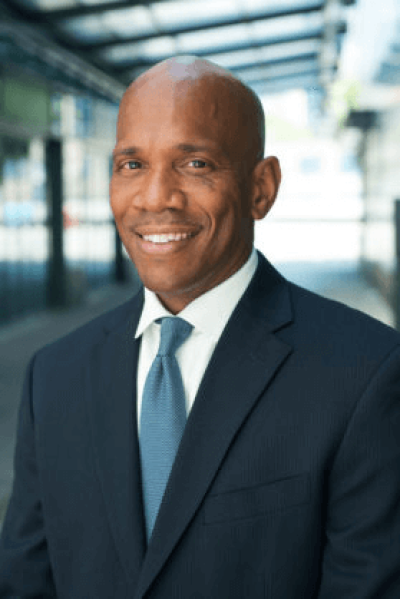America's Prisons Have a 'Fundamental Sin,' Reform Advocate Says

A new organization is tackling the "fundamental sin" in American prisons by building unlikely alliances and calling the Church to engage prisoners as human beings, not "throwaway people."
The Christian Post sat down recently with Steven Hawkins, president of The Coalition for Public Safety, to explore how the Church can become more involved in addressing the injustices in our nation's prisons.
Far too often physical solutions are proposed to fix fundamentally spiritual problems. And what reconciles those spiritual problems, all too evident in our criminal justice system? Sincere repentance before God.
"The fundamental sin here has been the notion, I think, is we have created such a weird system where we warehouse human beings for reasons that in any sane world [you] would scratch your head and say 'why on earth did we send that person for two years,'" Hawkins said.
"It is an understanding that we have fundamentally gone way off track," he continued, adding that in some ways we have created the reverse.
The Christian faith, however, is one of redemption. So with regard to criminals, there must be a "realization that people should not be remembered for their worst deed, that these are not throwaway people," Hawkins said.
In deeply divided political times the task of forging partnerships between liberals and conservatives proves challenging, particularly when their value systems begin at widely varying reference points. Even so, that is not deterring Hawkins from finding areas of common ground.
The 54-year-old Ossining, New York native emphasized that in the United States "we have a punishment system that has grown so broad and wide that there really aren't six degrees of separation for anyone in the country," Hawkins said. "This impacts everybody."
Ossining is home to Sing Sing Correctional Facility and when Hawkins was in high school he took a field trip there. Meeting with inmates there was an eye-opening experience and inspired in him a lifelong commitment to justice advocacy.

Now in its second year, under Hawkins' leadership, the Coalition for Public Safety is gaining ground as increasing numbers of people recognize that prison reform must be a national priority, not a partisan wedge. Pastors, state governors, powerful Washington D.C.-based organizations on both the right and the left are joining up with Hawkins to reform the system.
Believe it or not, Hawkins notes, one finds an "alignment that would not exist on many other issues but there is common ground on the need for justice reform."
Some of the Coalition for Public Safety's main sponsors include politically conservative organizations like FreedomWorks and the Faith and Freedom Coalition as well as progressive groups like the Center for American Progress.
Rarely does one see figures like Grover Norquist of Americans for Tax Reform finding common ground with the ACLU's Anthony Romero, Hawkins adds.
And that cooperation is happening because a cursory review of the statistical data on this issue reveals some harrowing realities.
As noted on the Coalition's website, although only 5 percent of the global population dwells in the United States, the U.S. has 25 percent of the world's prison population. The United States also leads the world in incarceration numbers, with some 2.2 million people currently in the nation's prisons, a staggering 500 percent increase over the past three decades.
Annually, it costs $80 billion in tax dollars to maintain this dysfunctional, unsustainable system. More painful is the fact that over 60 percent of prisoners today are racial and ethnic minorities.
Perhaps most alarming is that approximately one third of all Americans now have a criminal record, which carries lifelong barriers that hinder re-entry into society because of restrictions on housing, voting and limited job opportunities. Such hurdles perpetuate vicious cycles of poverty that creates untold misery for families and whole communities for generations.
But bright spots do appear on this bleak backdrop.
When approaching the issues, what is sometimes overlooked, Hawkins notes, is the role churches play; parishes of all denominations have some kind of prison-oriented ministry. Yet often the conversation around criminal justice centers on the larger policy. Many fail to realize that thousands of laymen are, on any given day, on the ground, regularly ministering to inmates.
And Hawkins is taking the same bridge-building approach with churches across the country, conversing with pastors and laymen to facilitate partnerships to solve these problems. No matter if pastors espouse conservative or progressive points of view, they receive calls from parishioners because someone in their congregations is affected by this.
"And if we are able to recognize that and help people get back on their feet, then it accomplishes many things," Hawkins said.
For more about Steve Hawkins, and the Coalition for Public Safety, click here. Check out their Facebook media page here.





















